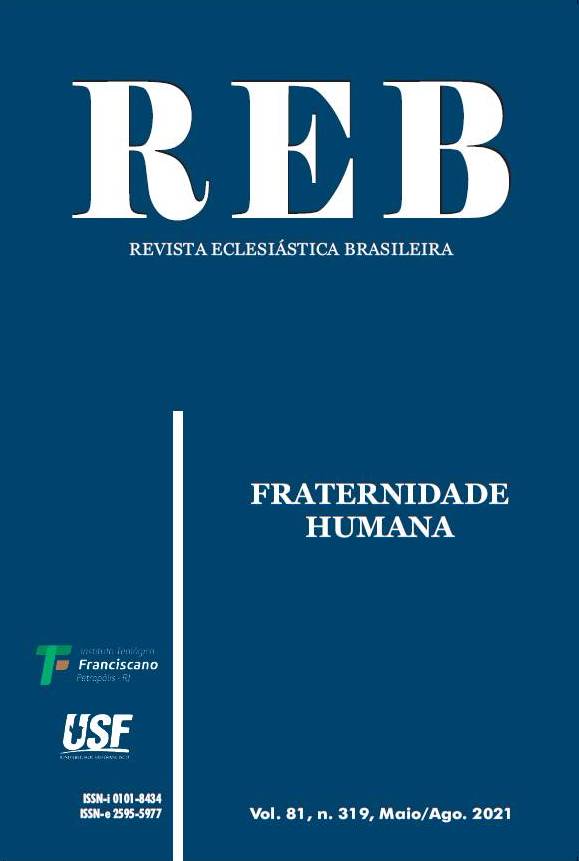Fraternidade: uma noção universal?
DOI:
https://doi.org/10.29386/reb.v81i319.2758Resumen
A Encíclica Fratelli Tutti, centrada na noção de fraternidade, vai dirigida a toda a humanidade, como se depreende de sua leitura. Entretanto, esta noção básica tem raízes judaico-cristãs. Como ficam as demais religiões? Daí a questão do título. Numa parte inicial se examina a relação da religião com seu contexto sociocultural; em seguida se apresenta a atuação do Espírito Santo como fator universalizante da fé cristã, embora sua ação seja diversamente captada e expressa. Numa terceira parte se estuda a gênese histórica do conceito de fraternidade, sua compreensão por parte da fé cristã e a dificuldade de exportá-la para outras tradições religiosas. Contudo, numa parte final, por serem as religiões entidades porosas que se influenciam mutuamente, a noção de fraternidade pode ser acolhida, embora sofrendo certa limitação em seu sentido. Por isso mesmo, no final, propomos a noção mais geral de dignidade humana, fundamental numa época em que o ser humano é sacrificado ao lucro e à produtividade.
Abstract: The Encyclical Fratelli Tutti, centered on the notion of fraternity, is directed to the whole of mankind, as we can infer by reading the text. However this basic notion has Judeo-Christian roots. How do the other religions stand in this case? Therefore the question contained in the title. In an initial part the relationship between religion and its sociocultural context is examined; next, the acting of the Holy Ghost as a universalizing factor of the Christian faith is examined, although its action may be expressed and received in different ways. In a third part the historical genesis of the concept of fraternity is studied, including its understanding on the part of the Christian faith and the difficulty to export it to other religious traditions. However, in a final part, because religions are porous entities that mutually influence each other, the notion of fraternity may be accepted even if after undergoing a certain limitation in its sense. For this very reason, at the end, we propose a more general notion of human dignity, fundamental at a time when the human being is sacrificed to profit and productivity.
Descargas
Descargas
Publicado
Cómo citar
Número
Sección
Licencia
Derechos de autor 2021 Revista Eclesiástica Brasileira

Esta obra está bajo una licencia internacional Creative Commons Atribución 4.0.
Os autores cedem os direitos autorais; como gratificação, a REB oferece dois exemplares ao Autor de um artigo.
A REB adere à licença não comercial (Creative Commons). Portanto, é permitida cópia, distribuição e exibição dos textos, respeitados os direitos autorais e citada a fonte de sua proveniência.


